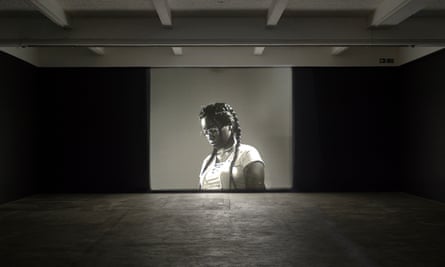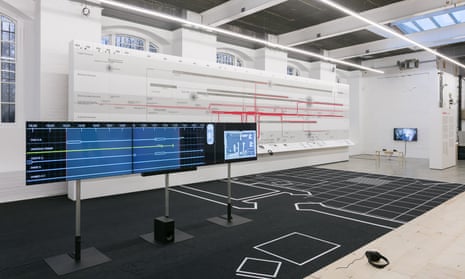A research agency that investigates international crimes and injustice, and comprises architects, film-makers, archaeologists, investigative journalists, lawyers and scientists, has been nominated for the 2018 Turner prize.
Forensic Architecture, which has about 16 members and is based at Goldsmiths, University of London, will compete for the 33rd edition of the prize against three solo artists – Naeem Mohaiemen, Charlotte Prodger and Luke Willis Thompson.
https://www.theguardian.com/artanddesign/gallery/2018/apr/26/reconstructed-prisons-racism-and-gender-politics-turner-prize-2018-shortlist-in-pictures
The list is more overtly political than in previous years, featuring artists tackling issues of post-colonialism and migration, queer identity, human rights abuses and racial violence. Once again, it raises questions about what precisely art is. The three solo artists primarily use film, whether shot on 35mm or iPhone.
Oliver Basciano, a member of the prize jury and international editor at ArtReview, said the shortlist reflected the times as it featured artists exploring “how did we get here ... trying to work out how things got a bit messed up”.
Alex Farquharson, director of Tate Britain, who chairs the jury, described the shortlist as “an outstanding group of artists tackling the most pressing political and humanitarian issues of today and how important the moving image, in various formats, has become in exploring these debates”.
Forensic Architecture is not the first collective to be nominated. Assemble, a group of designers and architects, won the prize in 2015 for their work helping residents to refurbish houses in Toxteth, Liverpool.
In the past, Forensic Architecture has worked with communities affected by social and political violence. It investigates huge subjects working alongside NGOs, human rights groups and media organisations.
For some the nomination pushes the boundaries of what art is, but for the novelist Tom McCarthy, one of the prize’s 2018 jurors, the collective goes back to the classical roots of what art is and should be. “We think it represents some of the most radical and groundbreaking art practice going on right now,” he said. “The work is urgent, important and above all brilliant.”
The group is nominated for presentations including, at the art festival Documenta 14, an exposé of the involvement of the German internal security service in a racially motivated murder in Kassel.

Mohaiemen, 49, an artist born in London and brought up in Dhaka, Bangladesh, is shortlisted for presentations at Documenta and Moma PS1 in New York. His subject is essentially history; he makes films that often explore post-colonial identity and migration.
Prodger, 44, born in Bournemouth and now based in Glasgow, is shortlisted for her solo exhibition at the Bergen Kunsthall. It included a film called Bridgit, which she shot on her iPhone, a device she has said she thinks of as a prosthesis.
New Zealand-born Thompson, 30, is shortlisted for a silent black-and-white 35mm film portrait of Diamond Reynolds, whose boyfriend was shot by police in Minnesota – a shocking event she livestreamed on Facebook.
The work, showing a resolute and almost motionless Reynolds, has also secured the artist a place on the shortlist for the Deutsche Börse photography foundation prize and is on display at the Photographers’ Gallery in London. Basciano said it was “as close to a classical portrait that I can ever imagine to see in the Turner prize”.
Compared with previous years, there are few laughs to be found on the list: no enormous pair of buttocks, no lights going on and off in an empty room. Jurors agreed this year’s shortlisted works were overtly and unashamedly political. But all art could be seen as political, said juror Lisa Le Feuvre.
“We as a jury feel that all art is involved in the world, and to be involved in the world is to be involved in society, in values, in power, in exchange, in dialogue, and that is something that is in the realm of the political, so all art resides in the realm of the political.”
The Turner prize was founded in 1984 and is one of the best known visual arts prizes in the world, so big you can even bet on it. William Hill’s art experts have made Forensic Architecture 13/8 favourite to win.
It is a prize that delights and aggravates audiences, but it embraces this conflict – its stated aim is to “promote public debate around new developments in contemporary British art”.
The work of all four nominees will be exhibited at Tate Britain from September, and the £25,000 winner will be revealed in December.
The prize has announced its first corporate sponsor for 10 years, the French banking group BNP Paribas. It is paying for a scheme allowing under-25s to visit the Turner prize exhibition for free for the first 25 days of its run.









